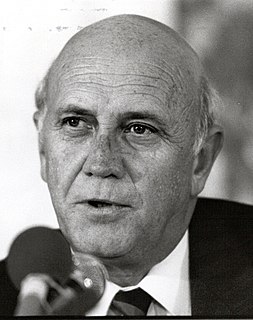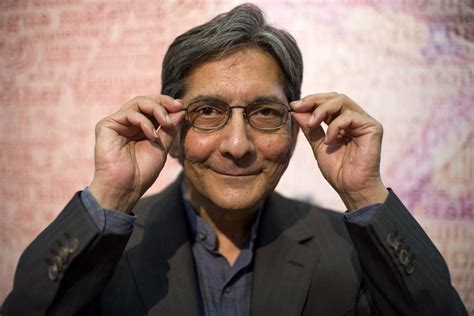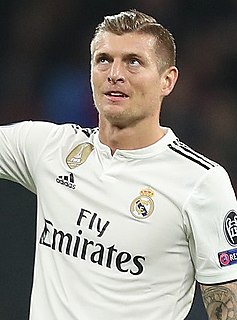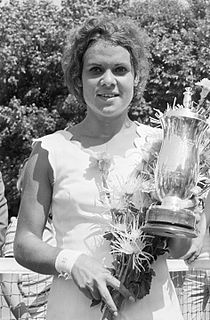A Quote by F. W. de Klerk
When I talk about the end of apartheid, I prefer not to claim the honor that I have ended it.
Related Quotes
I remember my emotions the day we watched Nelson Mandela walk out of prison Writing & literature in South Africa during the anti-apartheid years, became a 'cultural weapon.' You had to use it to fight apartheid & some of us resisted that in the end, you recognize that you are facing a government that has no scruples about using culture & art to oppress you.
Every time you hear anyone talk about the Caribbean, whether it's Caribbeans themselves or people outside, there's always talk about women's bodies. Talk about this voluptuousness, this kind of stereotype of what a Caribbean person is. And I think these are stereotypes that even people inside the culture, we actually sometimes claim them and we're very proud.
Here is the crisis of the times as I see it: We talk about problems, issues, policies, but we don't talk about what democracy means - what it bestows on us - the revolutionary idea that it isn't just about the means of governance but the means of dignifying people so they become fully free to claim their moral and political agency.
Mandela didn't end Apartheid in South Africa, the poor guy was in jail for 27 years, it was the African people that ended it but he was a symbol of their struggle. Or Gandhi in India, Gandhi was a great believer in non-violence and he was in and out of jail, but India became free. I think it's better to look at what people can do collectively and that's why it's so important to encourage them.
I don't like to claim that I am an expert on anything, but I have enough knowledge about climate science and climate system to be able to write scientific papers and go to meetings and talk about monsoon systems and talk about any other things that you want to discuss about climate science issues. I'm as qualified as anybody that you know on this planet on this topic.











































